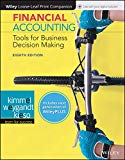
Financial Accounting: Tools for Business Decision Making, 8e WileyPLUS (next generation) + Loose-leaf
8th Edition
ISBN: 9781119491057
Author: Paul D. Kimmel, Jerry J. Weygandt, Donald E. Kieso
Publisher: Wiley (WileyPLUS Products)
expand_more
expand_more
format_list_bulleted
Concept explainers
Question
Chapter 9, Problem 9.3IFRS
To determine
Research and development costs: It refers to the expenditures spent on research, development, improvement or introduction of new products, processes, a new patent or even a copyright, that a company expects to get benefits.
To explain: the difference between development costs and development expenses and the appropriate classification of development expenditures.
Expert Solution & Answer
Want to see the full answer?
Check out a sample textbook solution
Students have asked these similar questions
The Blue Jay Corporation has annual sales of $5,200, total debt of $1,500, total equity of $2,800, and a profit margin of 8 percent. What is the return on assets?
Sales in Accounting
I not need ai solution please given correct answer general Accounting question
Chapter 9 Solutions
Financial Accounting: Tools for Business Decision Making, 8e WileyPLUS (next generation) + Loose-leaf
Ch. 9 - Prob. 1QCh. 9 - Prob. 2QCh. 9 - Prob. 3QCh. 9 - Prob. 4QCh. 9 - Prob. 5QCh. 9 - Prob. 6QCh. 9 - Prob. 7QCh. 9 - Prob. 8QCh. 9 - Prob. 9QCh. 9 - In the fourth year of an assets 5-year useful...
Ch. 9 - Prob. 11QCh. 9 - Prob. 12QCh. 9 - Prob. 13QCh. 9 - Prob. 14QCh. 9 - Prob. 15QCh. 9 - Prob. 16QCh. 9 - Prob. 17QCh. 9 - Prob. 18QCh. 9 - Prob. 19QCh. 9 - Prob. 20QCh. 9 - Prob. 21QCh. 9 - Prob. 22QCh. 9 - Give an example of an industry that would be...Ch. 9 - Prob. 24QCh. 9 - Prob. 25QCh. 9 - Prob. 26QCh. 9 - Prob. 27QCh. 9 - Prob. 9.1BECh. 9 - Prob. 9.2BECh. 9 - Prob. 9.3BECh. 9 - Prob. 9.4BECh. 9 - Prob. 9.5BECh. 9 - Prob. 9.6BECh. 9 - Prob. 9.7BECh. 9 - Prob. 9.8BECh. 9 - Prob. 9.9BECh. 9 - Prob. 9.10BECh. 9 - Prob. 9.11BECh. 9 - Prob. 9.12BECh. 9 - Prob. 9.13BECh. 9 - Prob. 9.14BECh. 9 - Prob. 9.1DIECh. 9 - Prob. 9.2ADIECh. 9 - Prob. 9.2BDIECh. 9 - Prob. 9.3DIECh. 9 - Match the statement with the term most directly...Ch. 9 - Prob. 9.5DIECh. 9 - Prob. 9.1ECh. 9 - Prob. 9.2ECh. 9 - Prob. 9.3ECh. 9 - Prob. 9.4ECh. 9 - Prob. 9.5ECh. 9 - Prob. 9.6ECh. 9 - Prob. 9.7ECh. 9 - Prob. 9.8ECh. 9 - Prob. 9.9ECh. 9 - Prob. 9.10ECh. 9 - Prob. 9.11ECh. 9 - Prob. 9.12ECh. 9 - Prob. 9.13ECh. 9 - Prob. 9.14ECh. 9 - Prob. 9.15ECh. 9 - Prob. 9.16ECh. 9 - Prob. 9.17ECh. 9 - Prob. 9.18ECh. 9 - Prob. 9.19ECh. 9 - Prob. 9.20ECh. 9 - Prob. 9.1APCh. 9 - Prob. 9.2APCh. 9 - Prob. 9.3APCh. 9 - Prob. 9.4APCh. 9 - Prob. 9.5APCh. 9 - Prob. 9.6APCh. 9 - Prob. 9.7APCh. 9 - Prob. 9.8APCh. 9 - Prob. 9.9APCh. 9 - Prob. 9.1CACRCh. 9 - Prob. 9.2CACRCh. 9 - Prob. 9.1EYCTCh. 9 - Prob. 9.2EYCTCh. 9 - Prob. 9.3EYCTCh. 9 - Prob. 9.4EYCTCh. 9 - Prob. 9.6EYCTCh. 9 - Prob. 9.7EYCTCh. 9 - Prob. 9.8EYCTCh. 9 - Prob. 9.9EYCTCh. 9 - Prob. 9.10EYCTCh. 9 - CONSIDERING PEOPLE, PLANET, AND PROFIT The March...Ch. 9 - Prob. 9.1IFRSCh. 9 - Prob. 9.2IFRSCh. 9 - Prob. 9.3IFRSCh. 9 - Prob. 9.4IFRS
Knowledge Booster
Learn more about
Need a deep-dive on the concept behind this application? Look no further. Learn more about this topic, accounting and related others by exploring similar questions and additional content below.Similar questions
- The Blue Jay Corporation has annual sales of $5,200, total debt of $1,500, total equity of $2,800, and a profit margin of 8 percent. What is the return on assets? Provide Right Answerarrow_forwardI want to this question answer general accountingarrow_forwardWhat cost does cosmo manufacturing record for the new machine?arrow_forward
- Financial Accounting 5.8: Firm X and Firm Y have debt-total asset ratios of 40% and 30% and returns on total assets of 9% and 11%, respectively. What is the return on equity for Firm X and Firm Y?arrow_forwardI need this question answer general Accounting questionarrow_forwardBella's Florist purchased a delivery truck for $25,000. The company was given a $3,000 cash discount by the dealer and paid $1,200 sales tax. Annual insurance on the truck is $600. As a result of the purchase, by how much will Bella's Florist increase its truck account?arrow_forward
- compute the cash conversion cycle for both years.arrow_forwardAnswer? ? Financial accounting questionarrow_forwardFinancial Accounting 5.8: Firm X and Firm Y have debt-total asset ratios of 40% and 30% and returns on total assets of 9% and 11%, respectively. What is the return on equity for Firm X and Firm Y? Want answerarrow_forward
- Bella's Florist purchased a delivery truck for $25,000. The company was given a $3,000 cash discount by the dealer and paid $1,200 sales tax. Annual insurance on the truck is $600. As a result of the purchase, by how much will Bella's Florist increase its truck account? Answerarrow_forwardHii ticher given true answer general Accounting questionarrow_forwardDecember 31, year 1?arrow_forward
arrow_back_ios
SEE MORE QUESTIONS
arrow_forward_ios
Recommended textbooks for you
- Principles of Accounting Volume 2AccountingISBN:9781947172609Author:OpenStaxPublisher:OpenStax College

Principles of Accounting Volume 2
Accounting
ISBN:9781947172609
Author:OpenStax
Publisher:OpenStax College
Cost Accounting - Definition, Purpose, Types, How it Works?; Author: WallStreetMojo;https://www.youtube.com/watch?v=AwrwUf8vYEY;License: Standard YouTube License, CC-BY